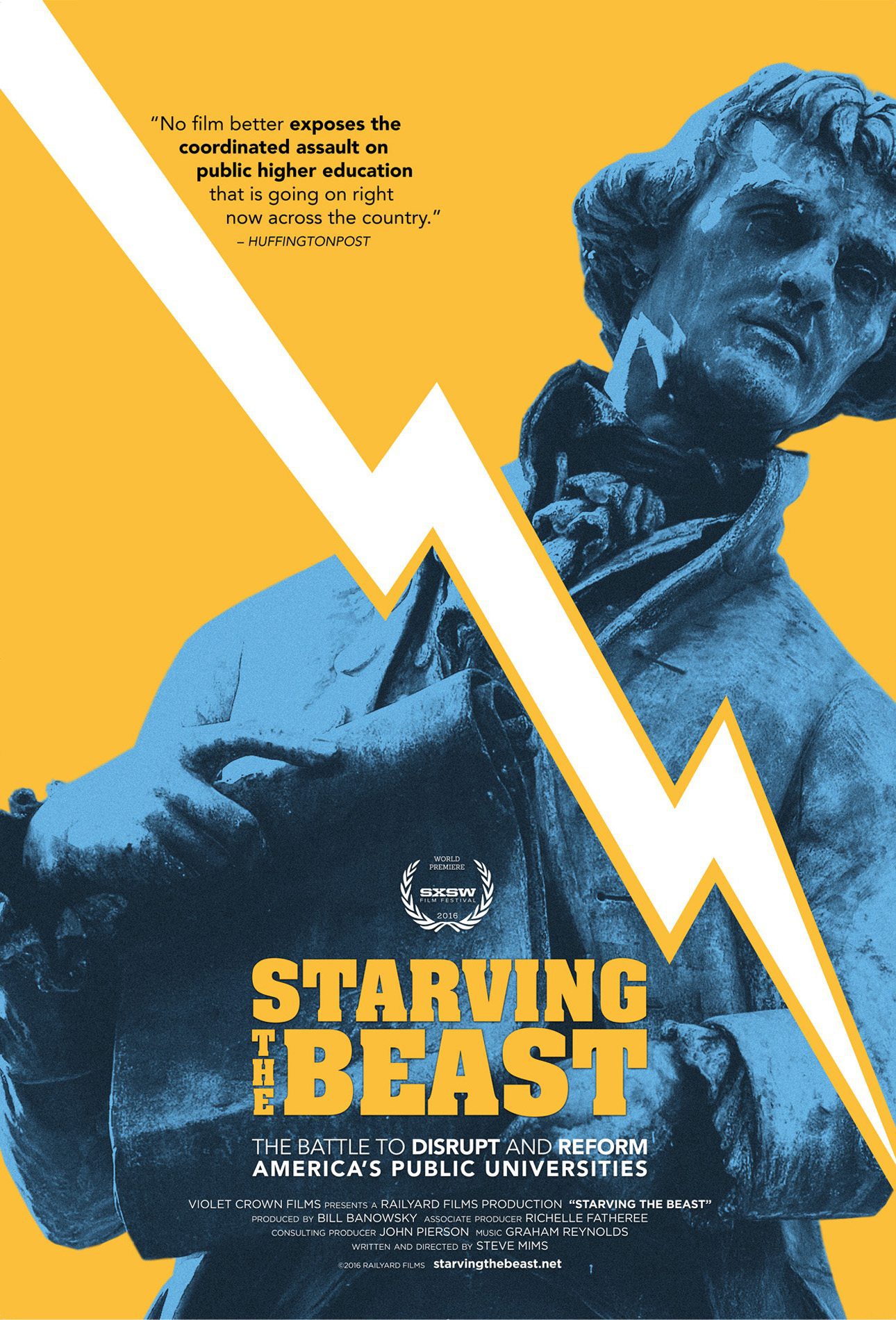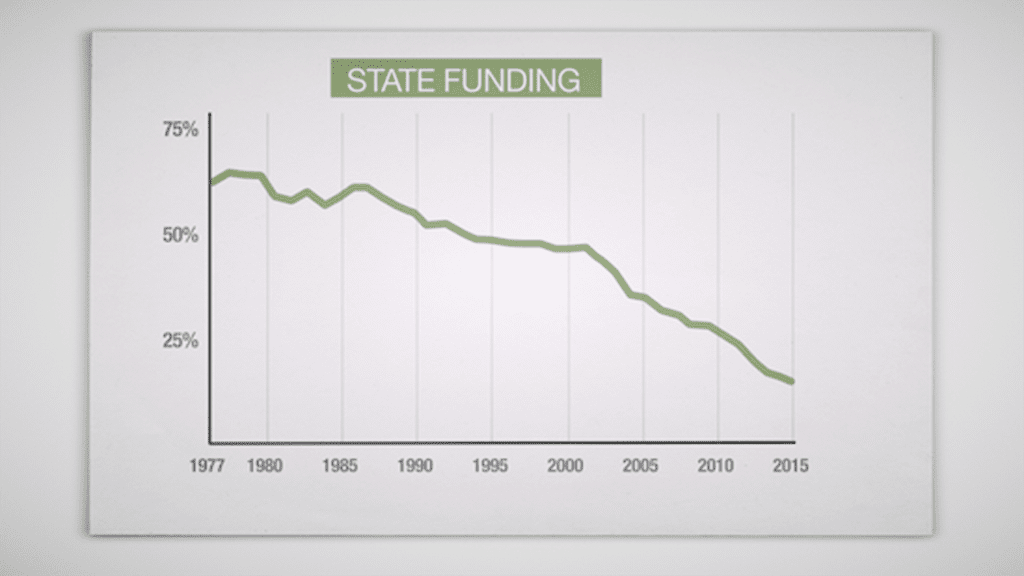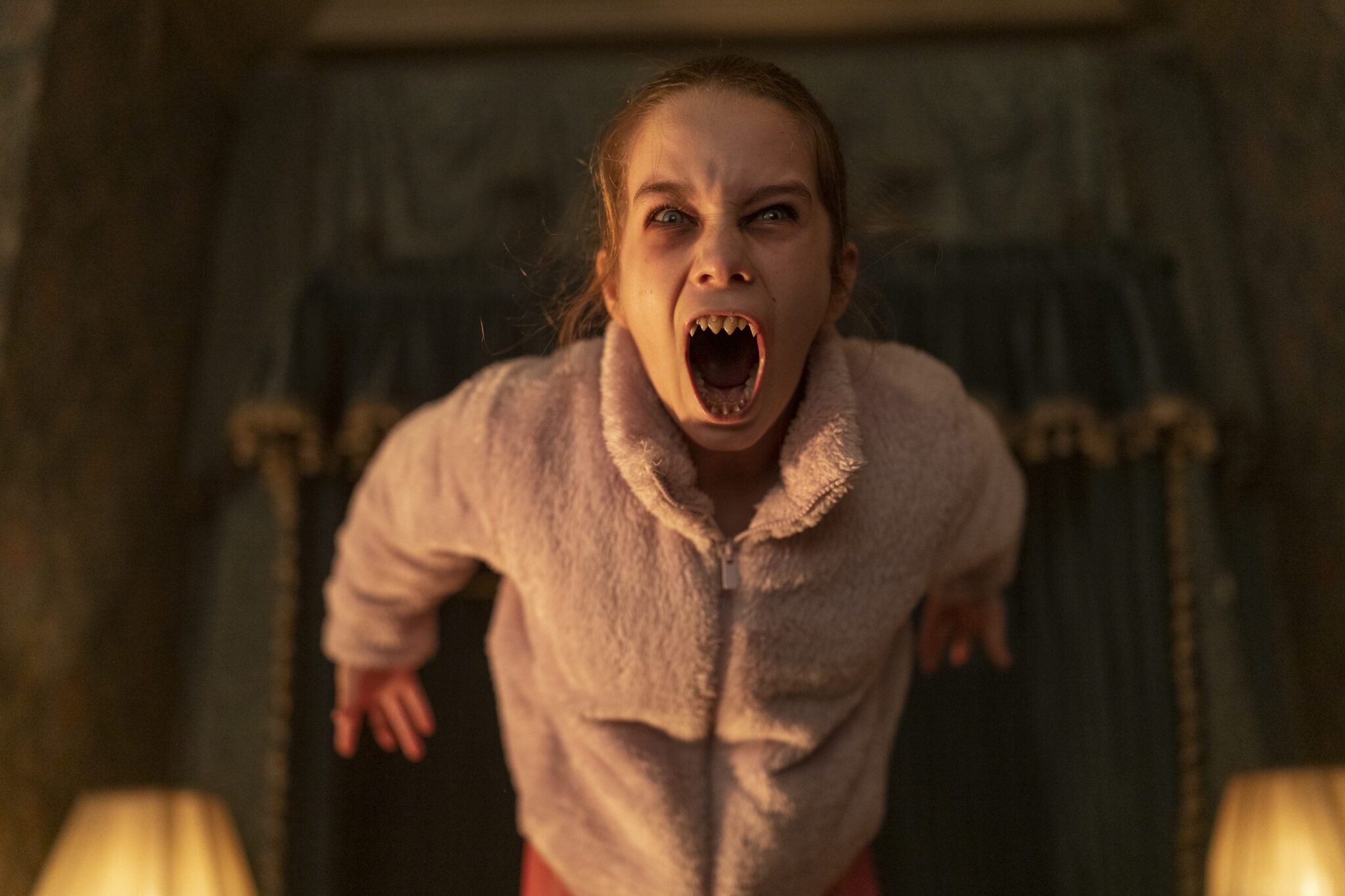The cost of higher education continues to soar. In the past, public universities were often much cheaper, allowing more people to attend because states provided most to the money for the schools. No more. In 1980, such funding peaked in the area of 70%, in 2012 it was only 12%. Starving the Beast is the story of the politics of this defunding.
The subtitle for the film, The Battle to Disrupt and Reform America?s Public Universities, gives some insights into the approach the film takes. It makes the case that conservative politics have intentionally sought to undermine public higher education. It looks at a number of public universities?University of Texas, Texas A&M, University of Virginia, Louisiana State University, University of North Carolina, and University of Wisconsin?all of which are in Republican dominated states. It argues that it was the conservative philosophy that has led to the severe cuts and pressures on the academic programs of these universities.
I have to admit that in general I agree with the filmmakers and their analysis of the situation in those places. However, I have some very serious issues with the film. First of all, by focusing on the schools and states it does, it makes the film into a very partisan piece. It doesn?t address the cut to higher educations in a state like California that is as blue as it could possibly be. Is it comparable? Clearly there are things other than the conservative tendency to cut taxes and government spending at work here. But the film seems to make it all about this.
The film gives very little time to considering the nature of public higher education. What should be the purpose of a state funded university? What kind of education do we believe is needed in the 21st Century? I think there are important reasons for the kinds of broad education that universities have traditionally provided, but the film never truly makes it clear why we should continue to provide that kind of education. The film spends little time countering the arguments for a different model of education, and when it does it often devolves into ad hominem arguments focusing on Grover Norquist or the Koch brothers.
Another objection I have to the film is that it offers no solution. About two-thirds of the way through the film, I began to say to myself, ?Okay, I get it. How do we fix it?? That fix never came. (Except for an unspoken but obviously implied solution of not electing Republicans.) The important issue of the state and future of public higher education needs to be discussed and dealt with far more than this film finally does.






